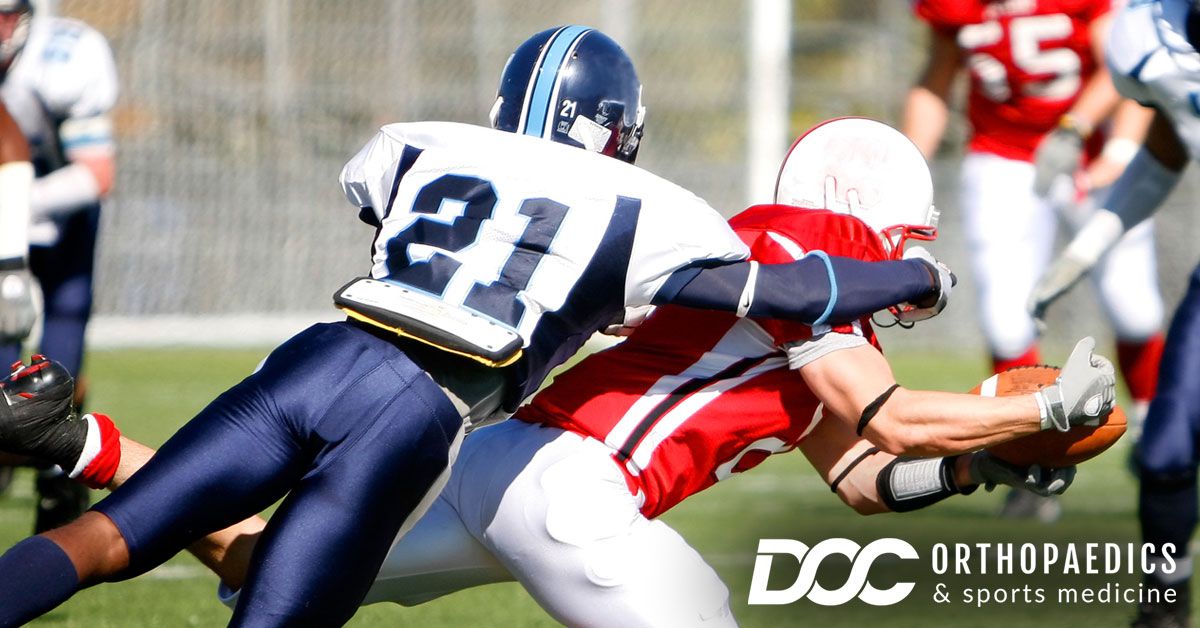
What every parent should know about concussions and traumatic brain injury
For every child who enters a field of play, there is a parent in the stands worried about possible injuries. No matter the sport, no matter the child’s age, a parent’s thoughts turn to all the possible ways their child could be hurt from falls, contact with other players or equipment, or just the nature of the game.
Concussions and other traumatic brain injuries are perhaps most concerning, not only because they are undoubtedly serious but also because it can be difficult to judge the long-term impact. Most frequently caused by a hard hit to or near the head, concussions are nearly always a risk in team sports, particularly high-impact sports like soccer and football.
How Can You Keep Athletes Concussion-Free?
Even with the best-laid plans in place, there’s no surefire way to prevent sports concussions entirely. But parents, coaches, and players can work together to limit head injuries on the playing field and help ensure a concussion is addressed quickly and appropriately if it does occur.
While concussions are more common in high-impact sports such as soccer and football, they can actually occur in any sport or activity. That’s why it’s important for players, coaches, and parents to be mindful of the following prevention strategies, regardless of the sport:
- Avoid head-to-head, arm-to-head, or foot-to-head collisions with other athletes.
- Wear the right protective equipment for the sport, such as helmets, padding, shin guards, and eye and mouth guards.
- Use properly fitted protective equipment, consistently and correctly, and make sure it is well maintained.
- Follow rules of fair play and sportsmanship.
Most importantly, if your child suffers a head injury, take him or her out of the game and have them evaluated by a physician. Encourage all athletes to speak up about issues or symptoms they might be having, especially relating to a head injury.
Are Younger Kids at Risk for Concussion?
Youth athletes aren’t the only kids at risk for concussion. Hard falls or bumps to the head are common causes of concussion in babies and toddlers, as well. There are steps you can and should employ to help keep young children safe at home and on the go:
- Don’t allow other children to carry your baby.
- Don’t leave your baby on a bed or couch.
- Don’t use baby walkers that have wheels, as these are prone to tipping.
- Always use safety straps on changing tables and in grocery carts and highchairs.
- Secure large pieces of furniture, such as bookshelves and TVs, to the floor or wall to prevent them from tipping over on your child.
- Make sure your child rides in an approved child safety seat or booster seat in the car.
- Keep windows and screens locked or install safety guards to keep your child from falling out of them.
- Use safety gates at the top and bottom of stairs.
- Make sure the surface on your child’s playground is made of shock-absorbing material, such as hardwood mulch or sand.
Helmets Can Help Prevent Concussions
A helmet gives a child an added layer of protection against a traumatic brain injury. Of course, there’s no guarantee that concussion won’t happen, but it is one way to help prevent the severity of a brain injury, especially when the right helmet is worn the right way during high-risk activities, including:
- Riding a bike, motorcycle, snowmobile, scooter, or all-terrain vehicle (ATV).
- Playing a contact sport, such as football, ice hockey, or boxing.
- Using in-line skates or riding a skateboard.
- Batting and running bases in baseball or softball.
- Riding a horse.
- Skiing or snowboarding.
It’s also wise to keep a helmet for each child in your family’s severe weather-safe space. During tornado watches and warnings, a helmet provides added protection against falling or flying debris.
If your child experiences a hit to the head—no matter how minor—keep a close watch for signs and symptoms of concussion. Reach out to your child’s doctor or consider a visit to a local emergency room if you see any symptoms.
Helping protect children from athletic or other injuries is at the heart of the mission of DOC Orthopaedics and Sports Medicine. Since 1972, these specialists have been committed to providing exceptional orthopaedic care through innovative techniques, quality services, patient communication, and education. With specialties ranging from general orthopaedics and physical therapy to sports medicine and more, the doctors at DOC Orthopaedics and Sports Medicine can provide local expert guidance to avoid injury, as well as any necessary care for any orthopaedic disorder or injury to help keep yourself and your children healthy and pain-free.

